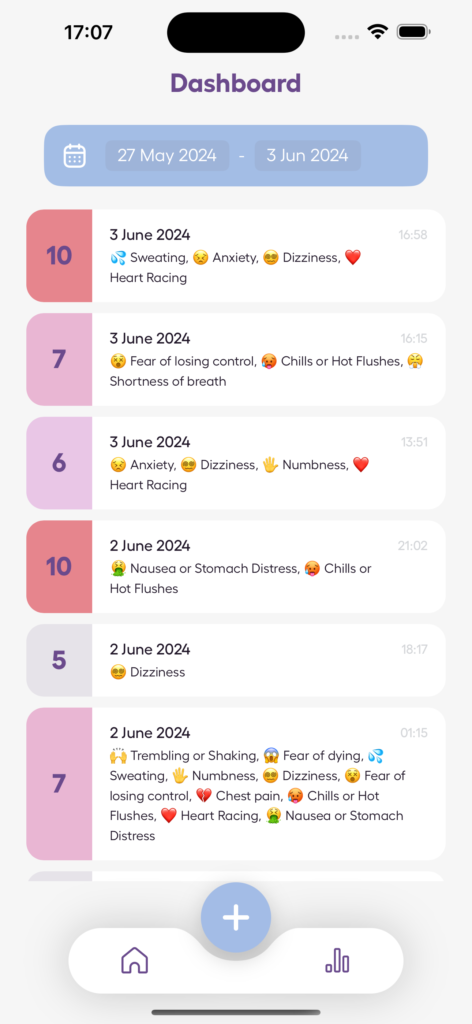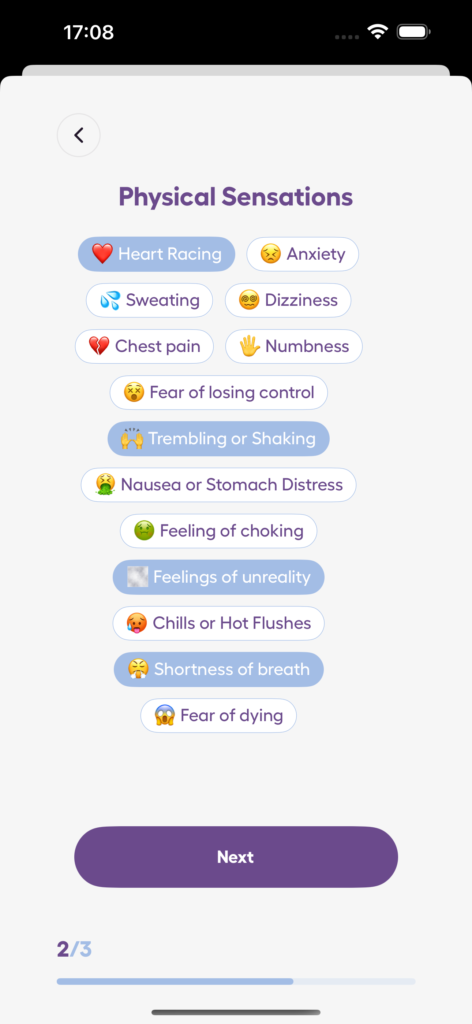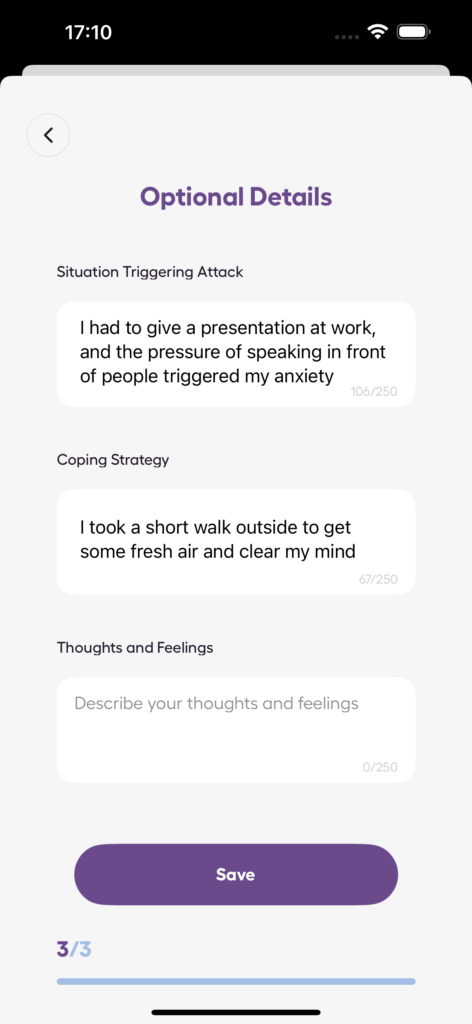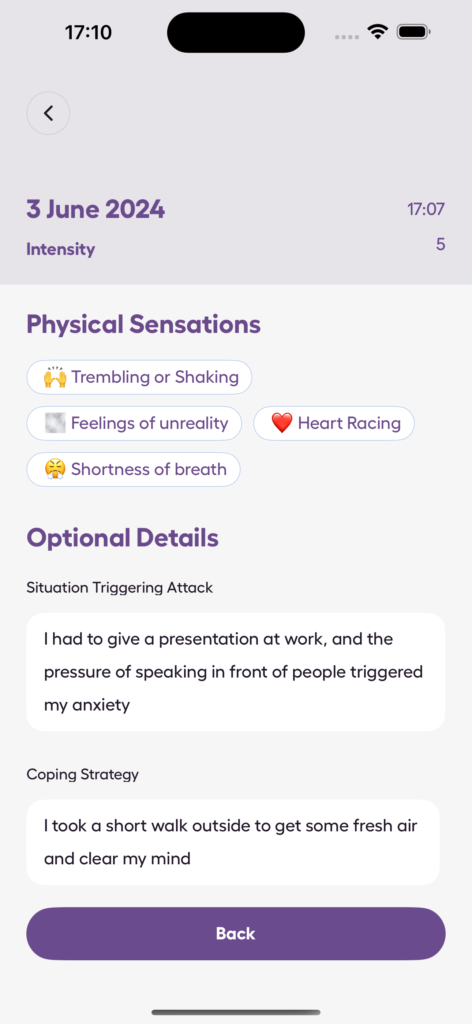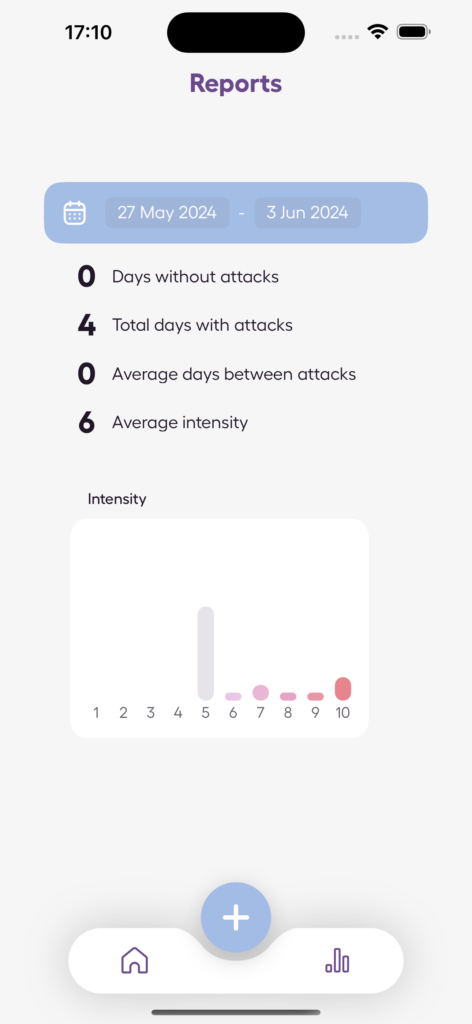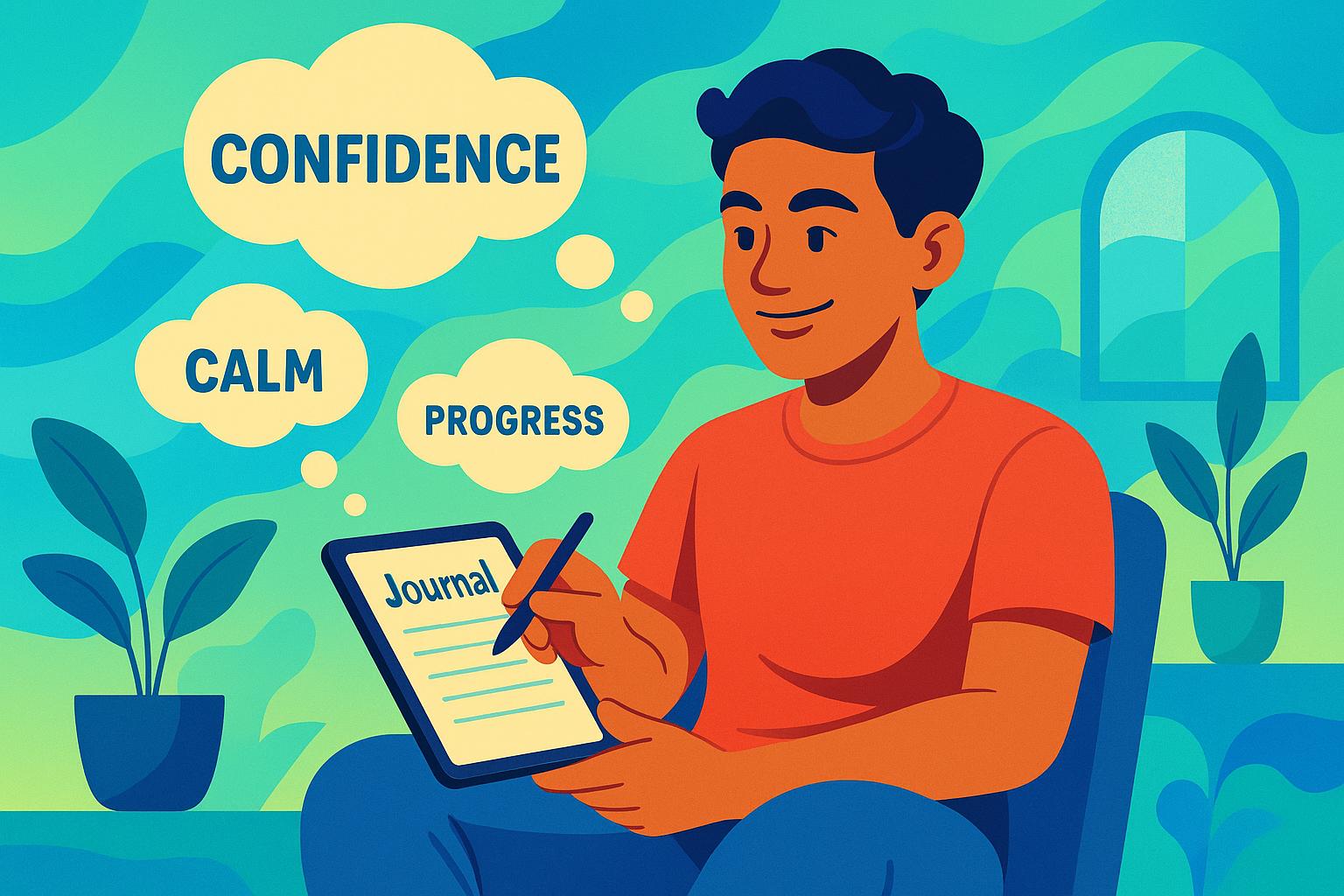Grief anxiety can hit hard after a loss or major life change. Here are 5 mindfulness techniques to help you cope:
- Focused Breathing: Slow, deep breaths to calm your mind
- Body Awareness Exercise: Release physical tension
- Self-Compassion Meditation: Be kind to yourself
- Mindful Walking: Ease restlessness through movement
- Mindful Writing: Process emotions without judgment
Why mindfulness helps with grief anxiety:
- Keeps you grounded in the present
- Helps process emotions without self-criticism
- Creates calm moments during overwhelming grief
To make mindfulness a habit:
- Start with 3-5 minutes daily
- Be patient with yourself
- Adjust techniques to fit your needs
Remember: Grief is personal. Find what works for you.
| Practice | Best For |
|---|---|
| Sitting meditation | Focused attention |
| Walking meditation | Physical restlessness |
| Body scan | Releasing tension |
| Journaling | Emotional processing |
Mindfulness won’t make grief disappear, but it can help you navigate the storm. Give these practices a shot – you’re taking a step towards healing.
Related video from YouTube
What is Grief Anxiety?
Grief anxiety is a tough emotional state that shows up after a big loss. It’s not just about losing someone – it can hit you after job changes, breakups, or other major life shifts.
Signs and Symptoms
Grief anxiety can show up in many ways:
- Constant worry and panic
- Fear of more loss
- Sleep issues
- Racing heart
- Trouble focusing
- Mood swings
- Avoiding people or places
- Feeling on edge
- Pulling away from others
"Probably 70% of my clients have gone into the hospital for a panic attack following a big loss." – Claire Bidwell Smith, therapist and author
How It’s Different from Regular Anxiety
Grief anxiety zeros in on your loss. It’s not about worrying about everything – it’s tied to the trauma of losing someone or something important.
Regular anxiety might make you worry about lots of things. Grief anxiety keeps bringing you back to your loss and how it’s changed your life.
What Triggers Grief Anxiety
Grief anxiety can start from:
1. Death of a loved one
This is the most common trigger. Facing life without someone important can be scary.
2. End of relationships
Breakups or divorces can spark grief anxiety. You’re losing a partner and a future you planned.
3. Health issues
A serious diagnosis or watching a loved one’s health decline can trigger grief anxiety.
4. Career changes
Losing a job or retiring can make you grieve your old identity.
5. Moving to a new place
Leaving familiar surroundings can lead to grief anxiety about starting over.
Grief anxiety is normal. As C. S. Lewis said: "No one ever told me that grief felt so like fear."
If you’re struggling, don’t go it alone. Talk to a therapist who knows grief and loss. They can help you work through your feelings and find ways to cope.
How Mindfulness Helps with Grief
Mindfulness can be a game-changer when you’re dealing with grief anxiety. It’s all about focusing on the here and now, without judging your thoughts or feelings.
Positive Effects on Grief Anxiety
Here’s how mindfulness can make a difference:
1. Acceptance of emotions
Mindfulness teaches you to observe your feelings without trying to change them. This can help take the edge off the anxiety that often comes with grief.
"Mindfulness doesn’t take grief away, it helps people respond to it differently. It helps people become aware of what they’re feeling so they can respond rather than react." – Theresa B. Skaar, MA, Ph.D. candidate and mindfulness instructor
2. Improved focus
Grief can make your mind feel like a pinball machine. Mindfulness practices can help you sharpen your focus and quiet those bouncing thoughts. In fact, a study of 19 people who did an 8-week mindfulness program showed better focus and less anxiety.
3. Stress reduction
Mindfulness can help lower your stress levels, which often go through the roof during grief. This can lead to better sleep and overall well-being.
4. Self-compassion
Mindfulness encourages you to be kind to yourself, which is crucial when dealing with the tough emotions of grief.
Other Helpful Coping Methods
Mindfulness is great, but it’s not the only tool in the toolbox. Here are some other strategies that can work well alongside mindfulness:
- Journaling: Put your feelings on paper. It can help you process your grief.
- Talking to others: Share your experience with friends, family, or a support group. It can help you feel less alone.
- Physical activity: Get moving. Regular exercise can boost your mood and reduce anxiety.
- Professional help: Consider talking to a therapist who specializes in grief. They can offer personalized support.
| Coping Method | How It Helps |
|---|---|
| Mindfulness | Increases awareness of emotions, reduces stress |
| Journaling | Allows expression of feelings, tracks healing progress |
| Talking | Provides social support, reduces feelings of isolation |
| Exercise | Boosts mood, improves sleep, reduces physical tension |
| Therapy | Offers professional guidance, teaches coping skills |
sbb-itb-b1dedcc
5 Mindfulness Practices for Grief Anxiety
Grief anxiety can be tough. But mindfulness can help. Here are five practices to try:
1. Focused Breathing
When grief feels overwhelming, try this:
- Sit comfortably, eyes closed
- Breathe in through your nose (4 counts)
- Hold (2 counts)
- Exhale through your mouth (6 counts)
- Repeat for 5-10 minutes
Alex Zima, a HopeHealth grief counselor, says:
"We can feel what we’re feeling, whether it’s just a busy mind, random thoughts or something a little deeper like grief or some other powerful emotions."
2. Body Awareness Exercise
Release physical tension:
- Lie down or sit comfortably
- Focus on each body part, starting at your toes
- Notice tight or uncomfortable areas
- Breathe into those spots, imagining tension melting away
- Slowly move up to the top of your head
3. Self-Compassion Meditation
Be kind to yourself:
- Sit quietly and comfortably
- Put your hand over your heart
- Think of a comforting phrase (e.g., "May I be kind to myself")
- Silently repeat it, focusing on your hand’s warmth
- If your mind wanders, gently refocus on the phrase
4. Mindful Walking
Ease restlessness:
- Choose a quiet path
- Walk slowly, focusing on each step
- Notice how your feet feel touching the ground
- If grief thoughts intrude, refocus on your steps
- Walk for 10-15 minutes
5. Mindful Writing
Process grief and reduce anxiety:
- Set a 10-minute timer
- Write without judging or editing
- Focus on current feelings and sensations
- If stuck, describe your surroundings
Making Mindfulness a Habit
Want to manage grief anxiety better? Make mindfulness a daily habit. Here’s how:
Creating a Daily Practice
Start small:
- Pick a set time each day
- Begin with 3-5 minutes
- Gradually increase to 10-15 minutes
Find a quiet spot at home. Use it every time to build the habit.
Dealing with Common Hurdles
1. Busy schedule
Don’t find time, make time. Set a reminder or link practice to an existing habit.
2. Wandering thoughts
Mind wandering? Normal. Just bring your focus back to your breath or body.
3. Feeling too anxious
Try a shorter session or switch to mindful walking on tough days.
Tailoring Practices to Your Needs
Not all techniques work for everyone. Experiment:
| Practice Type | Best For |
|---|---|
| Sitting meditation | Still focus |
| Walking meditation | Restless folks |
| Body scan | Physical tension |
| Mindful journaling | Emotional writers |
"Trust your instincts about what’s working and what’s not." – Alex Zima, HopeHealth grief counselor
Conclusion
Mindfulness can help you deal with grief anxiety. It’s about focusing on the present, which can ease the emotional rollercoaster that often comes with loss.
Why does mindfulness work for grief anxiety? It:
- Keeps you grounded in the now
- Helps you process emotions without judging them
- Creates calm moments when grief feels overwhelming
But here’s the thing: grief is personal. What helps one person might not help another. The key? Find what works for YOU.
As you start:
- Begin with just 3-5 minutes of practice each day
- Be patient with yourself
- Tweak techniques to fit your needs
"Grief is heavy, painful, difficult, and powerful. We need to touch into it at all levels, really acknowledge it, before we can release it." – Judy Lief, Mindfulness Teacher
This journey isn’t a walk in the park. But mindfulness can be your flashlight in the dark. By giving these practices a shot, you’re taking a step towards healing and finding some peace in the midst of loss.
FAQs
How to practice mindfulness for grief?
To practice mindfulness for grief:
- Express your feelings: Journal, talk, or create (like scrapbooking) to process emotions.
- Be present: Focus on now, not the past or future.
- Accept your emotions: Feel without judging yourself.
"Writing down your feelings helps you take a step back from your feelings and your thoughts—rather than having them rain on you—and brings intentionality to your feelings." – Alex Zima, grief counselor for HopeHealth
How do you practice grief mindfulness?
Here are 5 ways to practice grief mindfulness:
| Method | Description |
|---|---|
| Sit mindfully | Meditate to build mindfulness |
| Walk mindfully | Focus on your feet touching the ground |
| Write mindfully | Journal thoughts and feelings freely |
| Attend workshops | Join guided sessions for support |
| Use apps | Try mindfulness apps for daily practice |
How to use mindfulness for grief?
To use mindfulness for grief:
- Acknowledge feelings: Recognize emotions without trying to change them.
- Stay connected: Remember you’re not alone.
- Try grief-focused meditation: Use guided meditations for grief.
- Set boundaries: Limit draining interactions.
- Share your story: Talking can be healing.
"Embrace your grief. For there, your soul will grow." – Carl Jung


